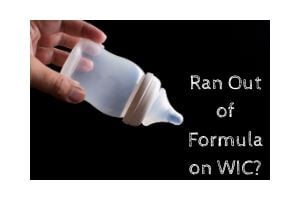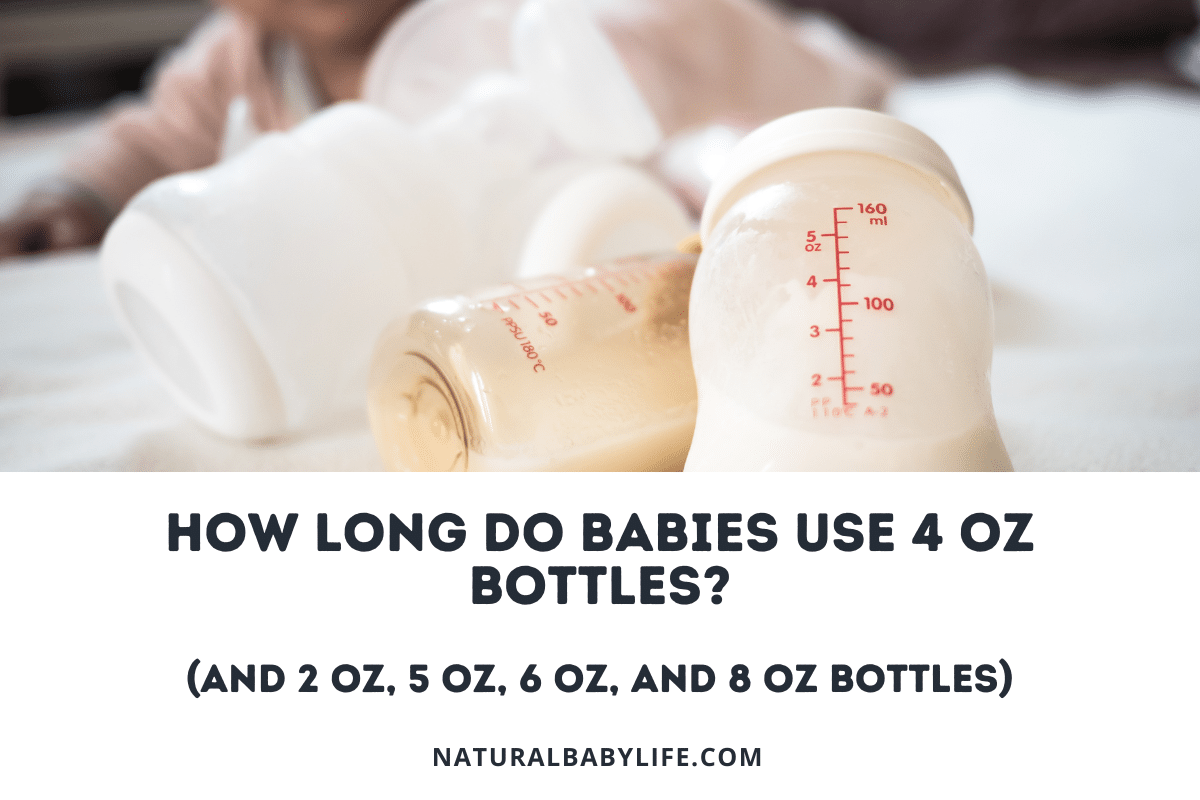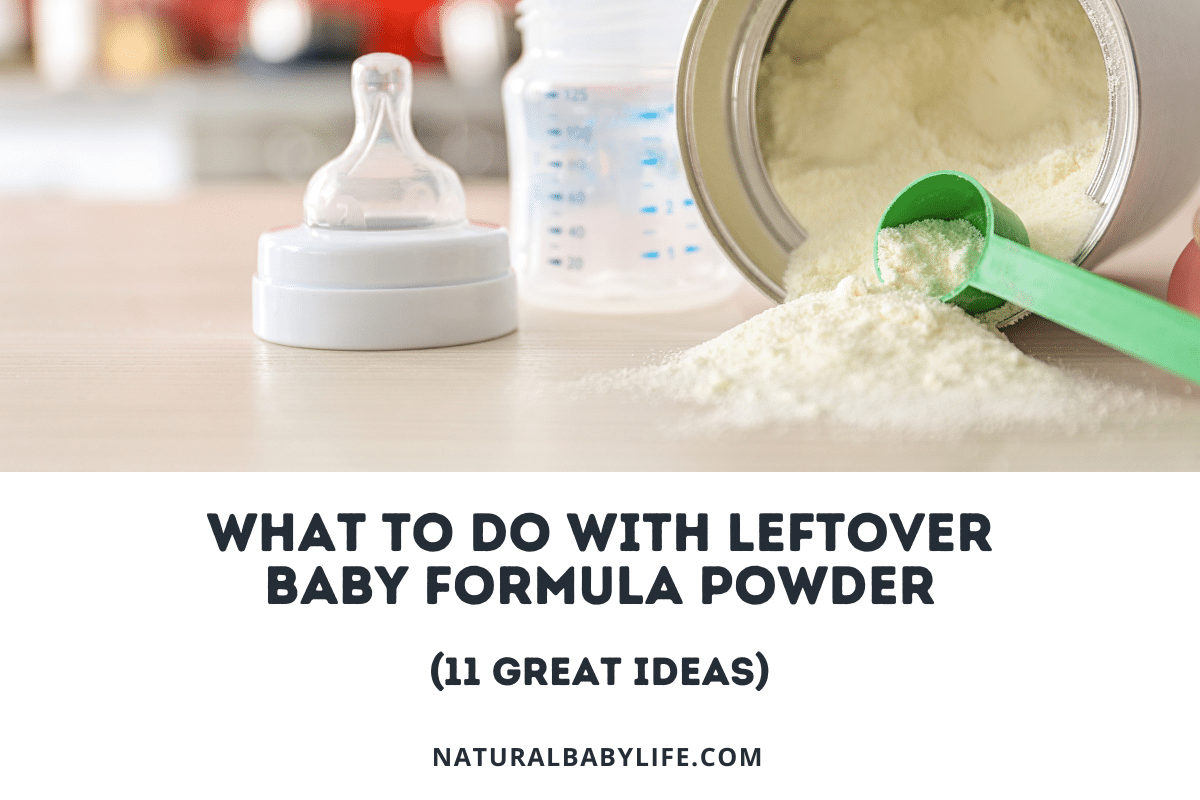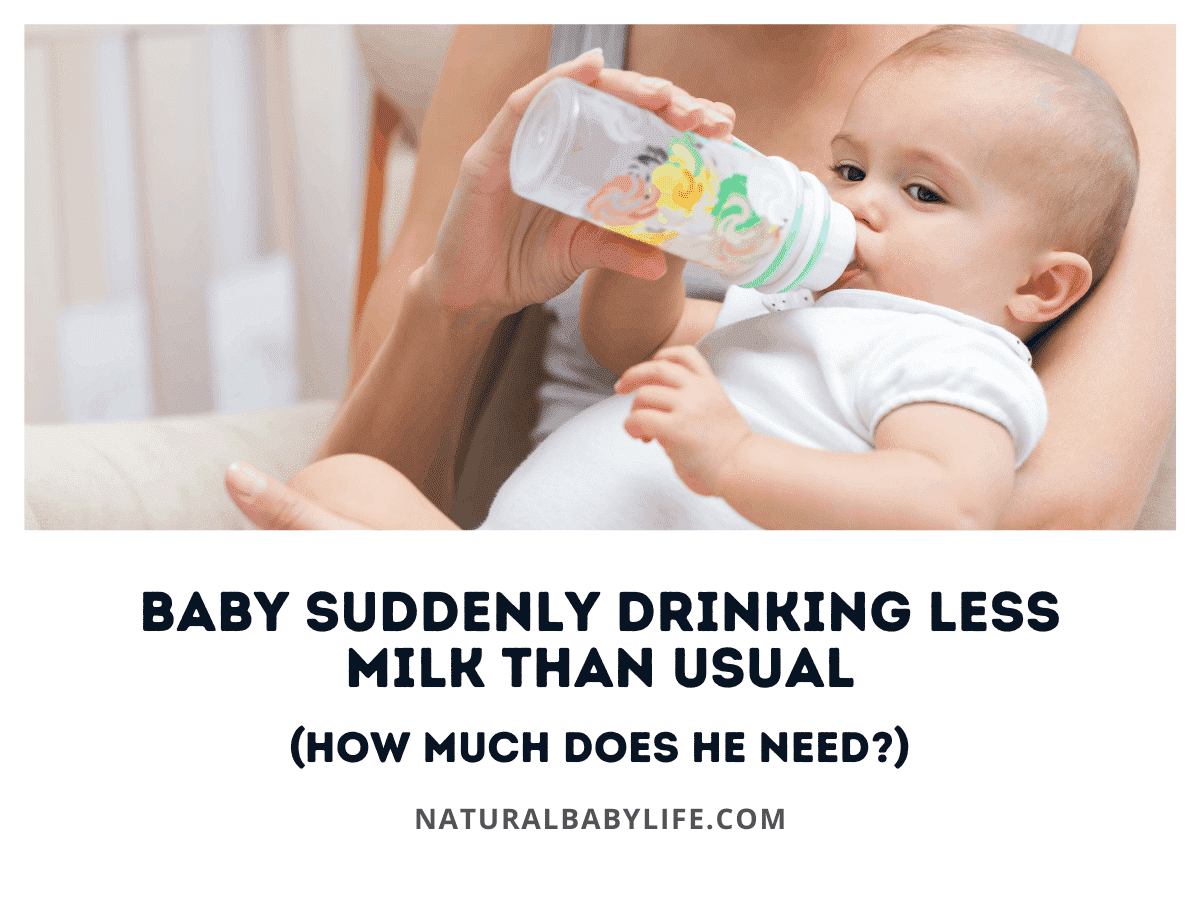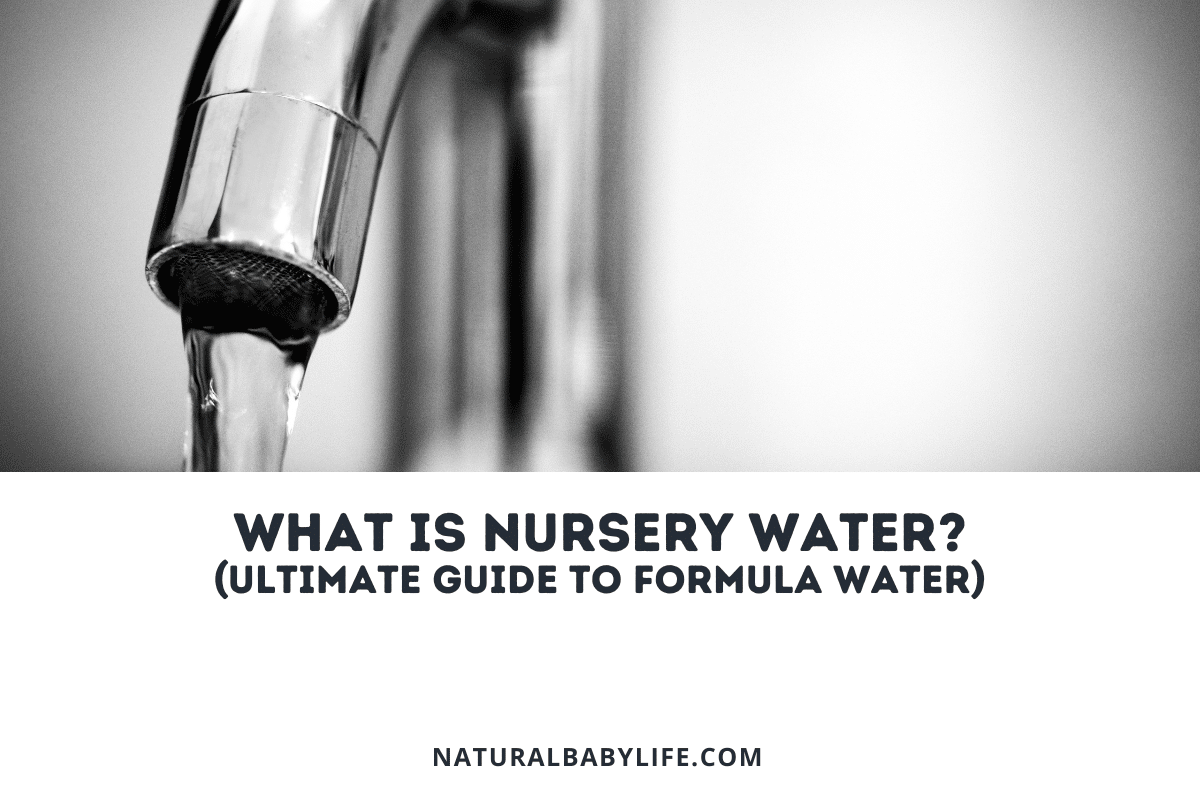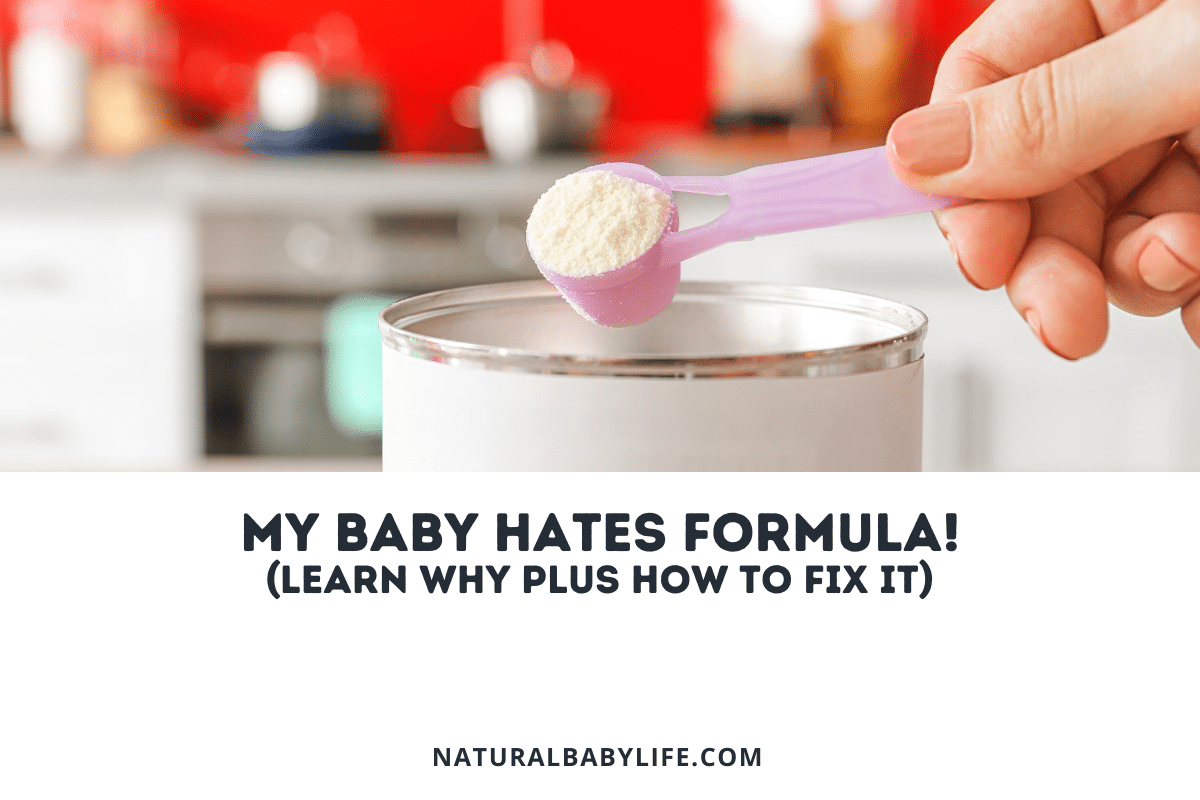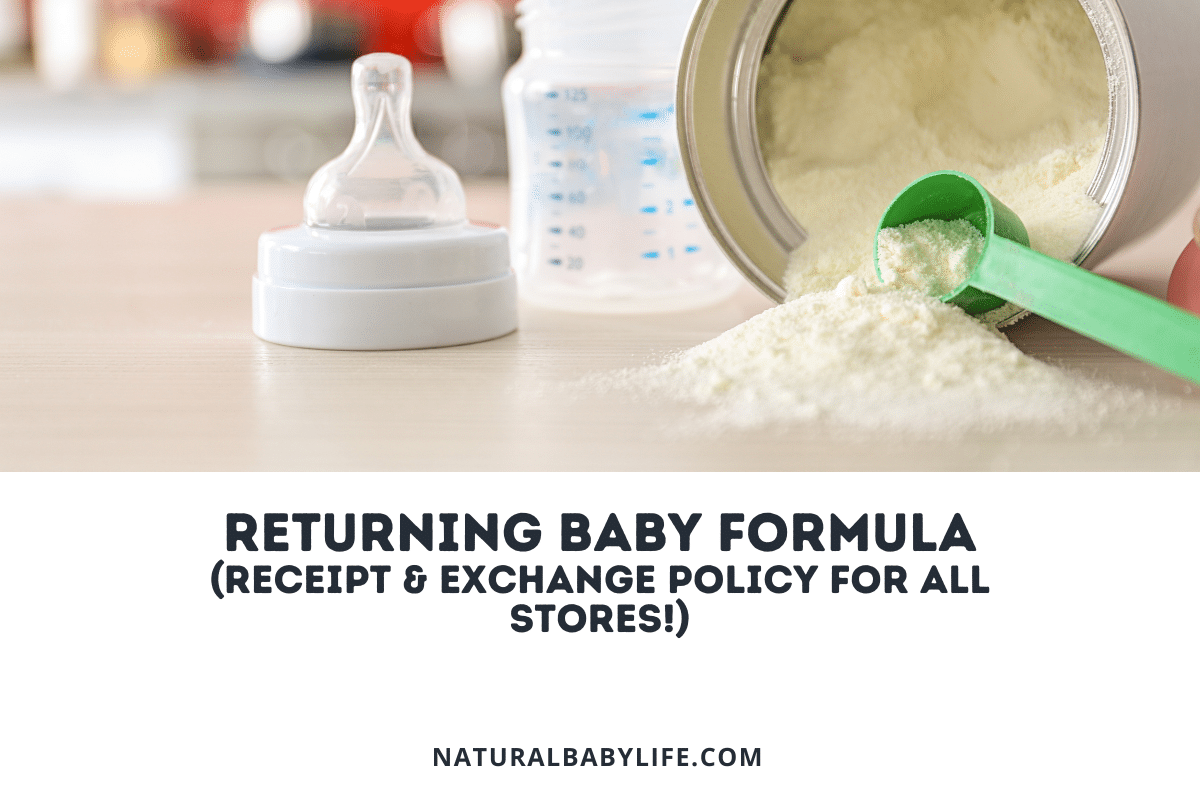If you have a newborn baby and aren’t exclusively breastfeeding, you know how quickly the cost of formula can add up. But what do you do if you run out of formula for your baby, whether because of an unexpected emergency, limited funds, or simple forgetfulness?
If you run out of baby formula, there are options you can use as emergency substitutes, but it is important to keep in mind that any substitute should be used on a very limited basis and that many options are likely to do more harm than good long-term and must be avoided entirely. If you run out on WIC, there are options to get the formula for free or at a reduced price.
If you’ve ever run out of formula, you know how stressful it is trying to figure out how to feed a frustrated, hungry child. Keep reading to find out what the best emergency substitute for baby formula is, what internet recommendations are potentially very dangerous for your child, and ways to avoid running out of formula next time.
Table of Contents
What is the best emergency baby formula substitute?
If you’re out of baby formula and are desperately in need of a quick and safe emergency substitute, you can use evaporated whole milk (recipe below). There are other potential options that may mimic the nutritional content of breast milk or formula, but, honestly, if you don’t have evaporated milk in your pantry, you probably don’t have goat milk or barley water.
Here’s the recipe, according to Nourishing Joy:
Emergency Baby Formula Substitute:
13 oz full-fat evaporated milk
19 oz boiled and cooled water
2 Tablespoons of blackstrap molasses
Combine all the ingredients and stir until the sugar is fully incorporated and the mix is the same consistency throughout. Anything that isn’t consumed immediately can be refrigerated for up to three days. This recipe makes roughly a quart of baby formula substitute.
Please keep in mind that any formula substitute should only be used in case of emergency because the store-bought versions have been carefully formulated and are FDA-regulated to ensure that the ingredients are optimized to aid in your baby’s development. Conversely, there are no regulations on any substitute recipes (including the one above) that you may find online, and the FDA does not recommend that consumers make infant formulas at home because of potentially serious health concerns.
When can babies drink whole milk?
Your first reaction is probably to just give your baby the milk you already for your morning cereal, but cow’s milk shouldn’t be given to your child regularly before he’s a year old.
Whole cow’s milk:
- Doesn’t have the right nutritional content for your baby, and could leave him iron deficient.
- Could cause microscopic gastrointestinal bleeding which could lead to iron deficiency.
- Could place excessive stress on your baby’s kidneys because his system is not yet ready to process the amount of certain nutrients found in whole milk; this could also lead to severe dehydration.
- Could lead to lactose allergies later in life.
It’s also important not to feed your child low-fat or skim milk because these are even more likely to dehydrate your baby, and the processing has removed many of the helpful nutrients.
Although it’s not recommended by the FDA, there are several countries (Canada, for example) that allow for babies over nine months to start drinking whole milk with the stipulation that they should also be consuming iron-rich solid foods. With that in mind, you can make the choice to give your nine- to twelve-month-old whole milk on a limited, emergency basis.
What can I substitute for baby formula in general?
If it’s just a question of getting your baby through an overnight feeding because you’ll be able to get more formula when the grocery store opens in the morning and your baby is at least six months old, consider giving him warm water in his bottle instead of formula at all. At this point, he’s eating enough during the day to aid his development, and the overnight feeding is more about habit and comfort than hunger.
What did babies drink before formula?
The traditional baby formula that you’re familiar with wasn’t developed until the early 1950s, but by the 1970s, over 75% of American babies were formula-fed. If I put you on the spot, you’d probably say that before formula, babies were breastfed by their mothers, but many children were fed either by a wet nurse or animal milk through a “feeding bottle.”
Wet nurses were used from 2000 BC until the 19th century for a variety of reasons ranging from wealthy women avoiding it or as substitutes after the mother’s untimely death. Unlike many other options, the use of a wet nurse provides the nutritional balance needed for a baby to develop properly.
With the development of glass bottles that could be properly sanitized, babies were able to be fed safely through a very early version of the baby bottles we use today. With that, came the first experiments with artificial formulas, including the early versions of Similac and Enfamil.
Can you make your own baby formula?
It is possible to make your own baby formula, but it’s important to remember that there are no FDA-approved options for doing so. If you are planning to make your own formula, you’ll need to do extensive research to understand the nutritional needs of your child. Before starting your baby on a diet of homemade baby formula, review your plan and recipe with your pediatrician. Nutritional deficiencies in your homemade formula may have extreme consequences, not all of which will be immediately apparent.
Can I really give my baby evaporated milk instead of formula?
Evaporated milk can be used as a stop-gap when baby formula is not available (see the recipe provided above). However, it is not an adequate long-term replacement for a store-bought formula that has been specifically designed to mimic the nutritional content of breastmilk.
Potential dangers of homemade baby formulas
Homemade baby formula should only be used on a very limited basis in the case of an emergency, but you must be aware that there could be significant and lasting negative effects to feeding your young baby anything that hasn’t been tested and approved by the FDA.
As I mentioned earlier, using whole or reduced-fat cow’s milk could overwhelm your child’s immature kidneys and lead to dehydration and iron deficiency. Non-fat and 1% cow’s milk is even worse for your child because the additional processing has also removed some of the essential nutrients.
Raw milk – milk that has not been pasteurized in order to kill harmful bacteria – has become popular in some “natural” circles in recent years, but is not recommended by the CDC for consumption by anyone of any age, but especially small children, pregnant women, the elderly, or anyone else with a compromised immune system. The most serious negative effects to feeding your young baby or child raw milk are Salmonella poisoning or E. coli, which can lead to kidney failure or even death.
Other homemade baby formulas may include goat’s milk, soy- or rice-based milk alternatives, or even meat stock, but, again, there are no FDA-recommended baby formula substitutes and each of these options could lead to serious immediate and ongoing health and developmental problems for your child.
- Goat’s milk – While goat’s milk is easier for your baby’s digestion, it is nutritionally ideal for a baby goat, not your baby. Goat’s milk can also stress your baby’s kidneys, and could lead to metabolic acidosis if consumed in the first month. If your baby is older than one year and shows a sensitivity to cow’s milk, responsibly sourced and pasteurized goat’s milk may be an adequate substitute, but you should consult your pediatrician before switching.
- Alternative milk – Soy and rice-based milk alternatives lack many of the vitamins found in store-bought formula, as well as not having enough of the basic calories, fat, and protein needed for your child’s development. It’s important to remember that your baby’s body and brain and growing every single day and they need more calories that you might think based just on the size of his tiny body. The lack of these important macros can lead to extreme malnutrition, lack of physical and mental development, or even death.
- Meat stocks or broths – Some homemade formula recipes include beef, chicken, or even liver to increase your baby’s protein intake, but it’s extraordinarily important to take care when feeding your baby anything that has the potential to congeal.
What if I ran out of formula on WIC?
If your baby’s formula is covered under the Special Supplemental Nutrition Program for Women, Infants, and Children (WIC), it’s important to be aware that the amount of formula supplied is not meant to cover the entire month’s food for your baby. If you run out and can’t afford to buy more formula, there are several options available to you, especially if you’re facing a recurring shortage.
Warning: Never water down your baby’s formula to make it last. While it may seem like a good way to make your limited amount of formula stretch to the end of the month, you will be depriving your baby of essential developmental nutrients as well as risk creating an imbalance in his sodium levels to the point of water toxicity. Water toxicity in a small child can lead to seizures, brain damage, and even death.
If you need to get through a very limited amount of time, the evaporated milk recipe provided above is the least likely to harm your child in the long run, but, of course, you should always consult your pediatrician before changing your baby’s diet.
For a recurring shortage, planning ahead and proactively seeking out additional options for acquiring baby formula or even donated breast milk can keep you from needing to make emergency substitutions when your WIC-supplied formula allotment runs out.
Will WIC give you more formula if you run out?
WIC is, by definition, a supplemental program and is not meant to feed your baby for the entire month. Unfortunately, if your budget doesn’t allow you to purchase an additional canister of baby formula, WIC is not able to assist you.
However, if it’s still an option for you, many WIC programs offer better coverage for breastfeeding women. Requirements and coverage vary by state, but you can consult the USDA website for a program overview and links to your state’s specific information.
Can you supplement with the store brand formula?
Generic or store brand formula can be up to half the price of the WIC-covered formula, but will switching between brands have a negative effect on your baby’s digestion? The truth is that, while different brands have different recipes, all baby formula is held to the same FDA quality standards, and the price difference is more about money being spent on marketing and samples driving up the cost of the national brands.
Where can you get free formula samples?
Major formula companies send hospitals and doctor’s offices baby formula samples all the time, so they’re both a great bet for picking up some extra formula to finish out the month. I’d recommend planning ahead because many families in the same situation will probably also be making this call toward the end of their allotment. The good news is that baby formula has a relatively long shelf life so it’s okay to stockpile a little bit in case of an emergency shortage. Even if you’re not coming up short every month, it’s a good idea to ask your pediatrician next time you’re in her office.
Many formula companies have programs on their websites that you can sign up for and receive samples and coupons as well as branded swag and informational content. Don’t just focus on your WIC-approved brand; most formula brands are comparable and can be used interchangeably in the case of a shortage.
Another option for acquiring formula for your child is to visit your local food bank. While there are no guarantees what foodstuffs are available, most food banks try to keep baby formula on hand specifically because there are no safe and convenient substitutes readily available.
Where can you get donated breast milk?
Baby formula was designed to mimic the mother’s breast milk so it stands to reason that breast milk would be a great substitute for baby formula. But where do you get breast milk?
There are lots of women who actually produce more milk than their baby requires, and donate the overage to milk banks. Donor milk from a milk bank is tested for potential illnesses and then pasteurized before being given over. Although there is some loss of nutrition from the pasteurization process, the development advantages of feeding your baby breast milk far outweigh the disadvantages. Unfortunately, this milk is also expensive (typically $3-5 an ounce, or at least $60 a day for a 10 pound baby); however, the cost may be covered by your insurance and some milk banks can help with costs if insurance doesn’t.
You should also consider calling your local hospital and asking if they have any “compassionate use” milk available. This is sometimes available for women who aren’t able to feed their baby on their own, but also aren’t in a position to get milk from a milk bank.

